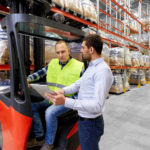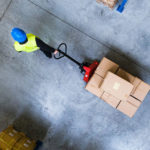Over the past few years, e-commerce in India has matured considerably and has become a stable part of Indian households, a few reasons for which are increased internet seepage and easy access to technology.
The past year has challenged conventions of commerce and pushed us to find alternative ways of doing business. The COVID-19 pandemic laterally inverted the world, leaving the global economy under a pile of rubble. E-Commerce, however has turned out to be the silver lining and managed to witness a steady growth.
Today, eCommerce comes as an experiential package comprising the Direct to Consumer (D2C) model and logistics automation, to provide seamless selling and shopping experiences to the merchants as well as their customers. For any business, logistics is crucial to ensure the smooth functioning of operations and for the D2C sector, it has played an instrumental role in driving its progress. Particularly in challenging, uncertain times, streamlining business logistics is one of the most vital aspects.
Logistics powering the Direct to Consumer (D2C) Sector in India
The COVID Pandemic literally halted business activities across the world. This in turn allowed the Logistics (especially Local Logistics) and the D2C ecosystems to evolve. Consumer expectations further fueled this growth. Big players like Amazon & Flipkart started turning towards third-party logistics facilities to fulfill their Last-mile Efficiency. Third-party logistics solutions providers also kept up with the pace by providing automated end-to-end services, from automated warehousing to doorstep deliveries.
Warehousing and Inventory Management
Small and Medium Warehousing Companies boosted E-commerce by providing easy and cost-effective access to shared and dedicated automated warehousing solutions by deploying Robust SOP’s for operations, Inventory management using state-of-the-art Warehousing Management Software, etc.. for all kinds of merchants, even the ones owning small scale businesses. From offering a flexible fulfillment model to ensuring that these sellers don’t have to go through a case of inadequate storage space during a surge in demand, third-party logistics facilities are offering the best-in-class, end-to-end services to sellers with the help of top-notch technology.



